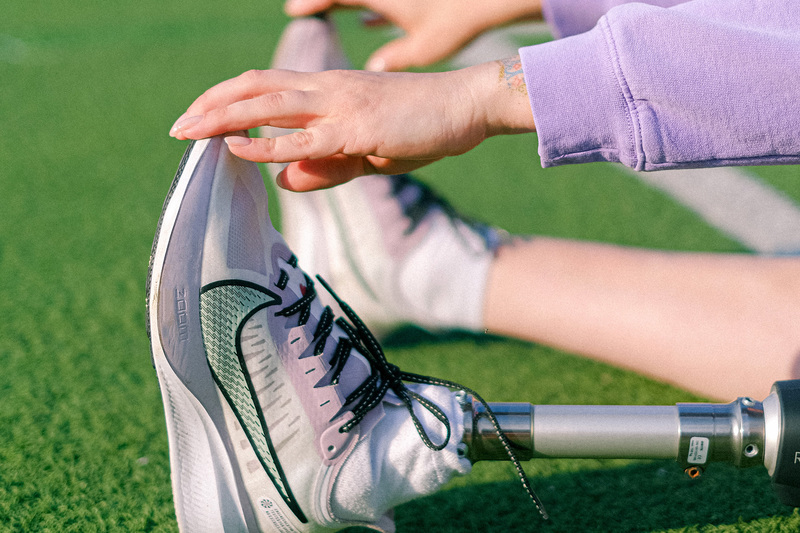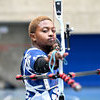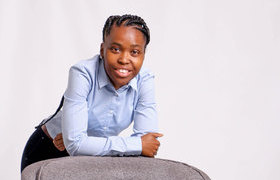Women’s Month: ‘Dream big’, women in sport urged
11 August 2021 | Story Niémah Davids. Photo Anna Shvets / Pexels. Read time 6 min.
“To each woman in sport, in all capacities: work hard, set goals, dream big, never quit, lead and follow, and educate yourself. Together, we are all stronger in sport.”
This was the overarching message shared by Reinet Barnard, the vice‑chairperson of the Western Province Sports Association for the Physically Disabled (WPSAPD), during the fifth annual Women in Sport event.
The event was hosted by the University of Cape Town’s (UCT) ParaSports Club and was held virtually, on Saturday, 7 August, ahead of national Women’s Day on Monday. Titled ‘Women who make parasport work’, the event provided a platform for those with alternative, yet vital roles in sport – such as administrators and classifiers – to share their sporting journeys.
Traditionally, the event’s speaker line‑up consists of a UCT sport enthusiast and two external guest speakers. But this year’s programme was slightly different: it included Barnard, who spoke about her love for the Paralympic sport boccia, and Tina Sachs, a national classifier for ParaVolley South Africa. Both were external speakers.
A sport of endurance
Barnard, a qualified physiotherapist, said her involvement in parasport started shortly after her graduation 23 years ago, when she joined a school for children with physical disabilities.
“Sport is good to [strengthen the body] physically and [to boost] the individual’s] self‑confidence.”
“Part of the physiotherapy rehabilitation programme is to encourage learners to participate in sport. Sport is good to [strengthen the body] physically and [to boost] the [individual’s] self‑confidence,” she said.
In 2002, when Barnard joined the South African Sports Association for People with Physical Disabilities in Gauteng, she fell head over heels in love with boccia – a sport aimed at individuals with severe physical disabilities.
Boccia is an indoor sport played on a fixed court; and because participants are unable to walk, they play while seated in their wheelchairs. Each athlete sits in a marked‑out box roughly 2.5 metres by 1 metre in size, and everything they need in order to play (the wheelchair, the ramp, the ramp assistant and the balls) fits into the box. The sport boasts a five‑category classification, ranging from level one to level five; but according to Barnard, only the first four categories are permitted to compete internationally at events such as the Paralympics, which kicks off in Tokyo later this month.
“Classification is very important in this sport, and it’s very important that athletes are classified correctly. In this way, they don’t disadvantage other athletes who play in the same classification,” she said.
As an international boccia referee, a level-one coach and the convenor of the WPSAPD, Barnard said, she remains in awe of what athletes with disabilities are able to achieve in boccia.
“I’ve been amazed at what athletes [are able to achieve], and how accurate they are,” she said. “Boccia is a very exciting sport. It’s also a sport of patience, and a sport of wit – you’ve got to be cleverer than your opponent; and it’s a sport of physical and mental endurance.”
Inclusivity in sport
Addressing the audience on paravolley (sitting volleyball), Sachs said the sport targets both abled and disabled athletes, and she described it as inclusive and interactive.
Sachs and her partner Anton Raimondo introduced the sport to South Africa in 2014, and later established ParaVolley South Africa – a non‑profit organisation that promotes and develops the sport in the country.
Paravolley is the Paralympic version of the popular standing indoor volleyball, and follows similar rules apart from some minor exceptions. The main differences are: a smaller court, a lower net, a mixed group of players (men and women), and players are seated on the floor without any mobility equipment such as wheelchairs, prosthetics or walking sticks and crutches.
“This makes it a rather inexpensive sport, and athletes don’t need to rely on any fancy equipment – which is sometimes quite difficult to get hold of, especially in a developing country like South Africa,” said Sachs.
Currently, there are about 15 clubs operational in South Africa, mainly in Limpopo and the Western Cape. Sachs, a trained level-one paravolley classifier, also touched on the importance of classification in disabled sport, especially in paravolley. She described classification as a standardised process created to assess each athlete’s impairment following a diagnosis by a medical professional. Classifiers also group athletes together according to their functional abilities, so as not to disadvantage other players in the team.
“It was great to be there to see South Africa play, and [to witness] the spirit and enthusiasm of all the players involved.”
For Sachs, the highlight of her involvement in the sport was the Africa ParaVolley Championships held in Rwanda in 2019.
“It was special to be a part of a well organised competition in a fellow African country, and it was great to be there to see South Africa play, and [to witness] the spirit and enthusiasm of all the players involved. It was amazing,” she said.
“When you see athletes giving their all, and being part of something so important and so special… that’s what motivates me.”
 This work is licensed under a Creative Commons Attribution-NoDerivatives 4.0 International License.
This work is licensed under a Creative Commons Attribution-NoDerivatives 4.0 International License.
Please view the republishing articles page for more information.










